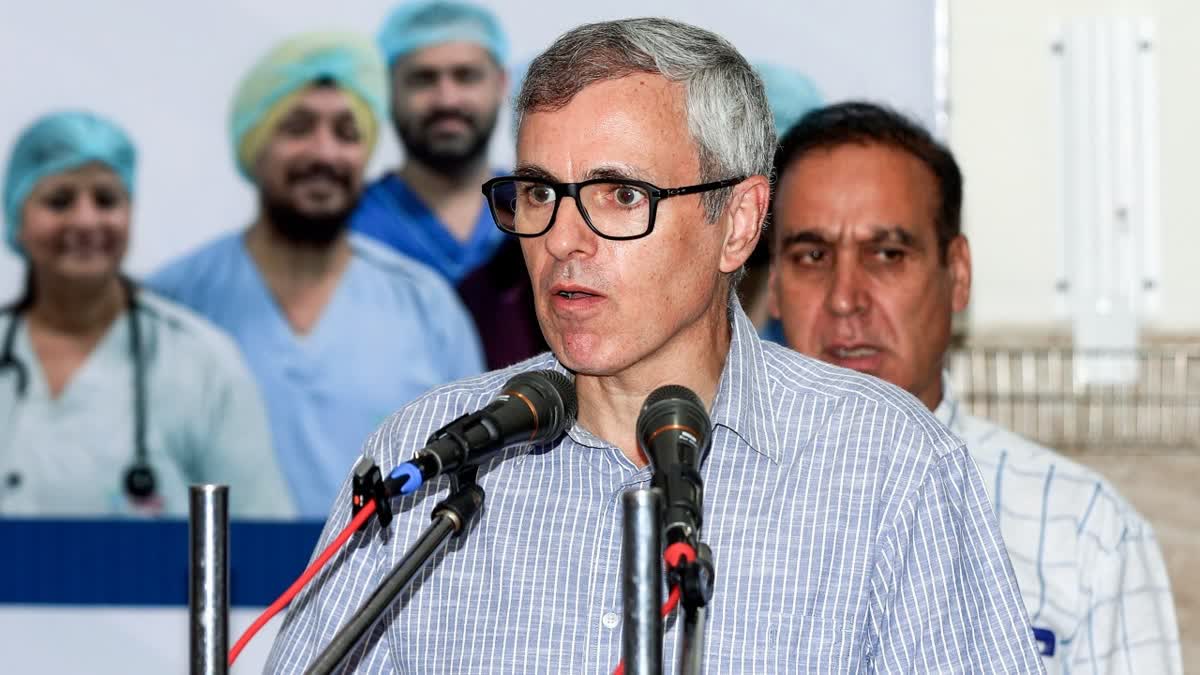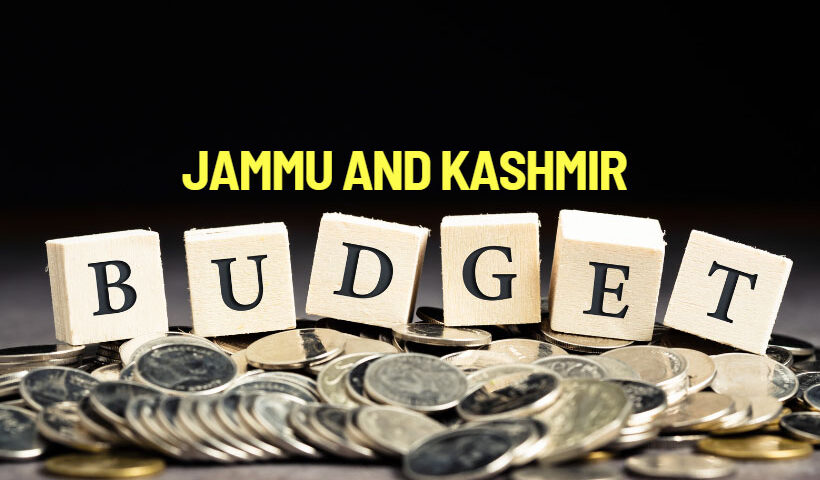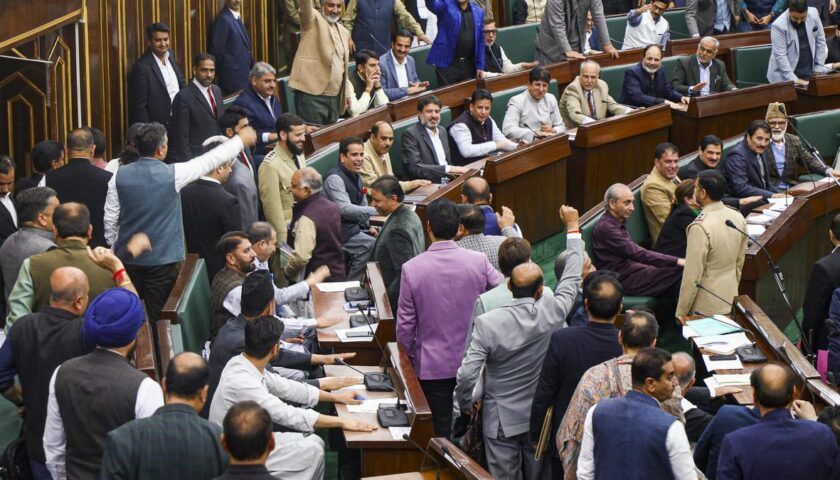Omar Abdullah Takes Direct Aim at BJP Over Rajya Sabha Polls
By: Javid Amin | 13 October 2025
The political temperature in Jammu and Kashmir is rising ahead of the October 24 Rajya Sabha elections. In a strongly worded statement, Chief Minister Omar Abdullah alleged that the Bharatiya Janata Party (BJP) is incapable of winning a single seat in the upcoming polls without indulging in “horse-trading, money power, and muscle power.”
Speaking to reporters in Srinagar on October 13, 2025, Omar declared:
“BJP cannot win three Rajya Sabha seats without horse-trading. In fact, they cannot even win one seat without it. They need 30 votes to win the fourth seat, and they have only 28. There is not a single MLA, other than those 28, who has shown any support to the BJP in the last one year.”
His remarks have injected a new intensity into the Rajya Sabha battle—already a high-stakes contest that could redraw political equations across the Union Territory.
The Stakes: Rajya Sabha Elections 2025 at a Glance
-
Total Seats: 4
-
Polling Date: October 24, 2025
-
BJP Votes: 28
-
Majority Required for 4th Seat: 30
-
NC Candidates: Choudhary Muhammad Ramzan, Sajad Kichloo, Shammi Oberoi
-
Congress: Withdrew after not receiving a “safe seat” offer
This contest is more than a routine parliamentary election—it is a symbolic test of strength between the ruling BJP at the Centre and the INDIA bloc alliance in the region.
BJP’s Number Crunching and Political Arithmetic
The BJP has fielded three candidates for the four Rajya Sabha seats but is short of the two votes needed for the fourth seat. This gap has forced the party to look beyond its own ranks—and that is exactly what Omar Abdullah targeted in his statement.
His calculation is simple:
-
BJP = 28 votes
-
Required for 4th seat = 30
-
Opposition alliance (NC + Congress + Independents) = 24+ votes
If there is no cross-voting, BJP will secure only three seats at best, leaving the fourth for the opposition. But if even a few MLAs abstain or cross-vote, BJP could turn the tide in its favor.
This is why Omar’s warning carries weight. He is signaling to fence-sitters and independents that any defection won’t go unnoticed.
“A Test of Political Allegiance” — Omar’s Warning to MLAs
In his remarks, Omar Abdullah went beyond criticizing BJP; he also issued a public warning to MLAs across parties:
“These elections will show who stands with BJP and who stands against them. Anyone who abstains or votes for BJP will be known to the people.”
This statement has two strategic layers:
-
Pre-emptive deterrence: Omar is trying to discourage cross-voting through public accountability.
-
Alliance signaling: He’s assuring Congress and INDIA bloc partners that NC will not allow BJP to walk away unchallenged.
Political insiders say such statements are designed to create a moral and political cost for any MLA contemplating defection.
Understanding “Horse-Trading” in Rajya Sabha Politics
The term “horse-trading” has long been part of India’s political vocabulary. It refers to the practice of influencing legislators through inducements—monetary or political—to change their vote.
Rajya Sabha elections, which are held indirectly through MLAs, have often been susceptible to behind-the-scenes bargaining, especially in closely contested states where just one or two votes can flip a result.
-
Why it matters in J&K:
-
BJP is short by 2 votes for its 4th seat.
-
Several independents and smaller party MLAs hold swing potential.
-
A fractured INDIA bloc increases vulnerability to cross-voting.
-
Omar Abdullah’s allegation is thus not only rhetorical—it reflects the strategic vulnerabilities in this specific electoral math.
Political Context: A Fractured INDIA Bloc
The Rajya Sabha election comes amid visible tensions within the INDIA bloc in J&K:
-
Congress has withdrawn from the race after being denied a “safe seat” by its ally NC.
-
NC has fielded all three candidates, projecting strength but raising concerns of unilateralism.
-
DPAP has stayed away entirely.
This has created fertile ground for BJP to exploit alliance cracks. Omar’s attack can also be read as an attempt to close ranks before the vote.
BJP’s Strategy: Searching for Two Votes
With 28 votes in hand, BJP has launched an intense, behind-the-scenes effort to secure two more votes.
Analysts suggest three possible tactics the party may employ:
-
Reaching out to independents and smaller parties.
-
Persuading abstentions from INDIA bloc MLAs, which lowers the effective vote count.
-
Projecting a ‘momentum narrative’ to make its win look inevitable.
It is this very strategy that Omar Abdullah is trying to expose publicly—hoping that early transparency will neutralize quiet maneuvering.
INDIA Bloc Response: Congress Backs Omar
Congress leaders have echoed Omar’s remarks, emphasizing that INDIA bloc unity will hold. Ghulam Ahmad Mir has already said no non-BJP MLA will cross-vote.
“No non-BJP MLA will vote for BJP. The opposition will vote unitedly,” Mir said earlier this week.
This statement, paired with Omar’s, is part of a coordinated narrative push—to reassure allies and signal discipline to their legislators.
Public Accountability: Omar’s Political Weapon
Unlike past Rajya Sabha elections where cross-voting remained shrouded in secrecy, Omar Abdullah has taken the unusual step of publicly naming the stakes.
-
He has framed the election as a loyalty test.
-
He has warned against abstention or defection.
-
He has put independents and small parties under the spotlight.
This strategy is aimed at raising the political cost of betrayal and ensuring that BJP’s path to the fourth seat remains steep.
What Makes This Rajya Sabha Election Different
Unlike many state Rajya Sabha elections, the J&K contest carries national significance because:
-
These seats have been vacant since 2021, symbolizing J&K’s changed political landscape after the abrogation of Article 370.
-
Whoever wins will shape the narrative in Parliament on statehood, rights, and governance.
-
It will signal the strength (or weakness) of opposition alliances ahead of the 2026 general elections.
A BJP sweep would reinforce its political dominance in J&K.
An INDIA bloc win would reenergize the opposition and highlight resistance to saffron consolidation.
Key Players and Their Political Stakes
-
BJP: Needs 2 extra votes to win 4th seat. A clean sweep would project power and momentum.
-
NC: Fighting to retain one seat and keep BJP below 4. A loss would be a major political setback.
-
Congress: Not contesting but crucial for alliance arithmetic. Its MLAs hold kingmaker weight.
-
Independents: Holding the swing votes that could decide the entire outcome.
This creates a perfectly balanced, high-stakes battlefield—where even a single abstention could shift the result.
Political Analysts Speak
Veteran political observers in J&K note that Omar Abdullah’s tone and timing are deliberate.
“He’s not just attacking BJP; he’s warning his own allies and independents,” said a senior analyst in Srinagar. “Omar wants to make cross-voting politically radioactive. If BJP still wins, it will expose defectors publicly.”
Others point out that the horse-trading narrative also energizes opposition cadre and positions NC as the leading anti-BJP voice in the region.
Cross-Voting: History in J&K and Elsewhere
Cross-voting has influenced several high-profile Rajya Sabha contests in India.
-
In previous J&K assembly terms, independents have often played decisive roles.
-
Nationally, close contests have seen MLAs shift loyalties at the last minute.
-
Public statements like Omar’s are rarely made this early, indicating how crucial these votes are.
This history gives weight to the horse-trading allegations—even if they remain technically unproven.
Beyond the Polls: Why the Outcome Matters
The Rajya Sabha seats in question are not just parliamentary positions—they are political megaphones.
-
A BJP sweep would give the party a louder voice in Parliament to defend its J&K policies.
-
An INDIA bloc win would signal that BJP dominance is not absolute, and could reinvigorate opposition morale.
-
For Omar Abdullah personally, holding at least one seat is critical to maintaining his stature as a credible challenger.
How the Numbers Could Play Out
Here’s a simplified projection of potential outcomes:
| Scenario | BJP Votes | Opposition Votes | Result |
|---|---|---|---|
| No Cross-Voting | 28 | 24+ | BJP wins 3 seats, NC wins 1 |
| 1-2 Cross-Votes to BJP | 30 | 22 | BJP sweeps all 4 seats |
| Opposition Abstentions | 28 | <24 | BJP wins 3, possibly 4 (if threshold drops) |
| United INDIA Bloc + Independent | 28 | 26-28 | Tight contest, possible upset on 4th seat |
This razor-thin margin is why allegations of coercion and horse-trading are surfacing early in the campaign.
Public Sentiment on the Ground
While ordinary citizens don’t vote in Rajya Sabha elections, many see this contest as symbolic of larger democratic battles.
-
Young voters express frustration over backroom politics, demanding transparency.
-
Civil society voices are calling for opposition unity to check BJP dominance.
-
Pro-BJP supporters argue the party has earned its majority and should convert it into representation.
“We may not vote directly, but we’ll remember who stood with whom,” said a postgraduate student in Baramulla.
Legal and Ethical Lens
While horse-trading is widely criticized, it’s also notoriously difficult to prove in court. Rajya Sabha voting is secret ballot, and whips do not legally bind MLAs the way they do in legislative business.
This creates loopholes that parties can exploit:
-
MLAs can abstain without official defection.
-
Independent votes are often “brokered.”
-
Political favours can be traded without cash changing hands.
This is why political messaging and moral pressure—like Omar Abdullah’s remarks—often become the primary tools of counter-strategy.
Opposition Strategy: Preempting Coercion
The INDIA bloc appears to be deploying a two-pronged approach:
-
Moral framing: Painting BJP’s attempt to win the 4th seat as “illegitimate horse-trading.”
-
Political discipline: Holding coordination meetings with MLAs to minimize abstentions and defection.
Insiders say senior Congress and NC leaders will stay in touch with every MLA personally before the vote, to reduce “last-minute surprises.”
BJP’s Counter-Narrative
BJP leaders have dismissed Omar Abdullah’s allegations as “baseless” and “a preemptive excuse for losing.”
Party insiders claim:
-
Their 28 votes guarantee three seats legitimately.
-
Any additional support would be political, not transactional.
-
Omar’s attack is meant to divert attention from INDIA bloc infighting.
This sets up a classic narrative battle:
-
Omar framing BJP as coercive and transactional,
-
BJP portraying opposition as weak and divided.
What Happens After October 24
Whatever the outcome, political aftershocks are inevitable.
-
If BJP sweeps: Expect a renewed confidence push, with messaging around “inevitability of saffron dominance.”
-
If INDIA bloc wins a seat: It will embolden opposition strategy for 2026 Lok Sabha polls.
-
If cross-voting is detected: Defections will dominate headlines, and trust within alliances may erode.
Editor’s Take: Why Omar Abdullah’s Words Matter
Omar Abdullah’s accusation of horse-trading is not a routine political attack—it is a strategic preemptive strike.
-
It raises the stakes of the Rajya Sabha election.
-
It frames defections as betrayal in the public eye.
-
It pushes independents and allies to pick a side openly.
Whether this strategy succeeds or not, it has already shaped the narrative of this election.




